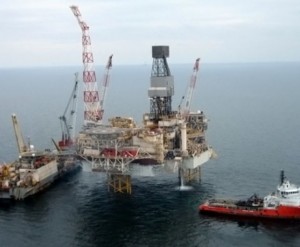
The signing of a document on the final investment decision on the Shah Deniz -2 project in Baku will ensure Europe’s energy security, Italian Deputy Foreign Minister in Marta Dassu told journalists on Dec.16 in Baku.
Dassu emphasised Azerbaijan’s significant role in ensuring the energy security for the whole of Europe.
The final investment decision on the Shah Deniz -2 project will be adopted on Dec.17 in Baku.
The contract to develop the offshore Shah Deniz field was signed on June 4, 1996.
Participants to the agreement are: BP (operator) – 25.5 percent, Statoil – 25.5 percent, NICO – 10 percent, Total – 10 percent, Lukoil – 10 percent, TPAO – nine percent and SOCAR – 10 percent.
Shah Deniz reserves are estimated at 1.2 trillion cubic meters of gas.
The cost of the second phase of development of Shah Deniz gas condensate field is estimated at $25 billion.
Within the second phase of development it is planned to produce some 16 billion cubic meters of gas (within the first phase – 9 billion), six billion of which will be transported to Turkey and ten billion to Europe.
A consortium of Azerbaijani Shah Deniz gas condensate field development announced its choice of the TAP project in late June, as a gas transportation route to the European markets.
The initial capacity of the TAP pipeline will be 10 billion cubic meters per year with the possibility of expanding to 20 billion cubic meters per year. Trans-Anatolian (TANAP) gas pipeline will be constructed for transportation of gas through Turkey’s territory.
Italy is also interested in the development of cooperation with Azerbaijan in the non-energy sphere, the deputy foreign minister said.
Source: Trend





